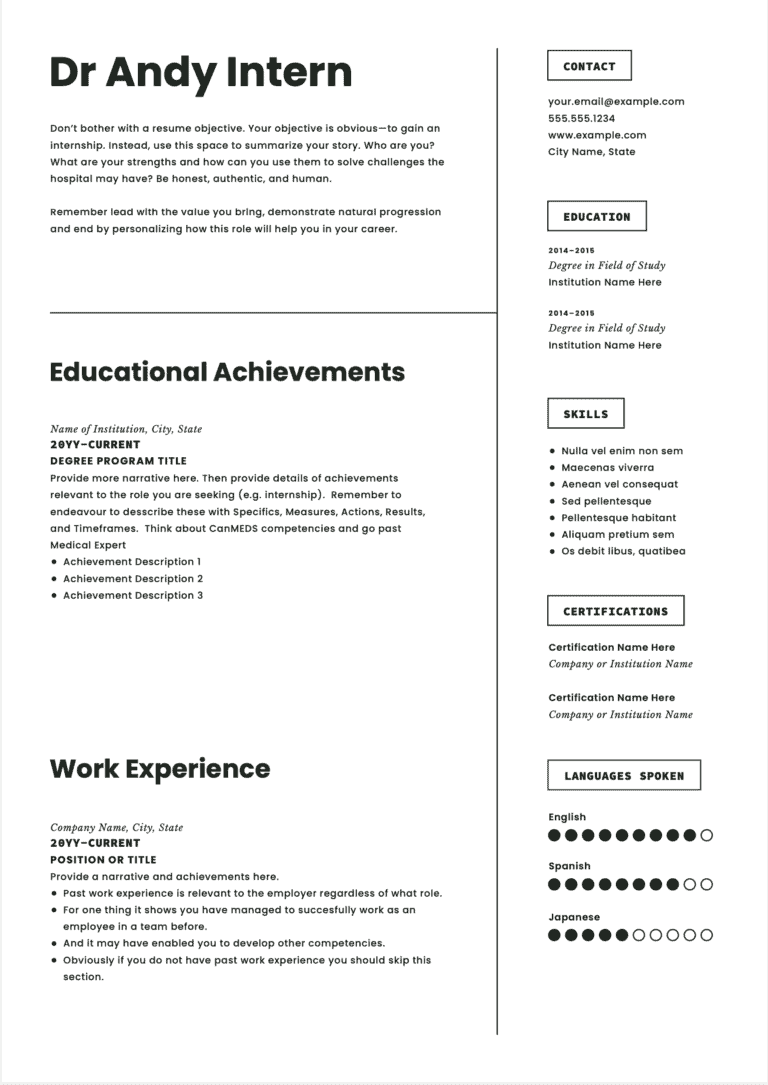featured image c/- CC wikimedia
As somebody who has reviewed 1000s of applications from international medical graduates for oftentimes scarce roles in Australia, I have had the opportunity to correlate English testing score performances with job candidate performance as well as real-world performance in the job. I’ve also spoken with many other doctors who do job selection. I’d like to share some insights with you about the English proficiency standards and English Requirements for doctors working in Australia. What I intend to share with you is the knowledge you ought to have but which is actually not normally shared with candidates.
But first of all. It is not surprising that the focus of many international doctors in seeking employment in Australia is working out what the required medical board standard for
But
- IELTS Academic module. The IELTS score for doctors in Australia is a minimum overall score of 7 and a minimum score of 7 in each of the four components (listening, reading, writing and speaking).
- OET with a minimum score of B in each of the four components (listening, reading, writing and speaking
- PTE Academic with a minimum overall score of 65 and a minimum score of 65 in each of the four communicative skills (listening, reading, writing and speaking)
- TOEFL iBT with a minimum total score of 94 and the following minimum score in each section of the test: 24 for listening, 24 for reading, 27 for writing, and 23 for speaking.
Perhaps It Is a Little Bit More Complicated Than That.
OK, it is actually a little bit more complicated than this because the Medical Board will also accept successful completion of the following tests as evidence of English language competency:
- the New Zealand Registration Examination (NZREX) administered by the New Zealand Medical Council
- the PLAB test administered by the Professional and Linguistic Assessments Board of the General Medical Council.
Aggregation of Results
And in addition, for each of the above-mentioned tests, the International English Language Test (IELTS), The Occupational English Test (OET), The Pearson Test of English Academic (PTE Academic) and The Test Of English as a Foreign Language Internet-Based Test (TOEFL iBT), the Medical Board of Australia will now accept an aggregation of results across two separate tests.
So for example, for the IELTS score for doctors in Australia, you can aggregate your scores across two tests such that you can count scores from either test to come up with 7 or more across the 4 domains. As long as you do not score less than 6.5 on any domain in either test. So if you get a 6.5 in listening on one sitting you can fix this by getting a 7 on a future test.
The Minimum Standard Is Not Going To Get You Very Far
Whilst the focus on achieving the minimum standard is understandable its actually a distraction from what international doctors ought to be focusing on, which is being able to demonstrate effective communication skills.
You see in order to be registered as a health practitioner in Australia, the Medical Board and the Australian Health Practitioner Regulatory Authority say that you “must be able to demonstrate that your English language skills will enable you to safely practice your profession.”
Safe To Practice Or Good Practice?
But this only part of the point. There is also the issue of being able to effectively practice your profession or even practice your profession at a high standard.
So why is it that the minimum score may not be sufficient for you. Well actually there are a couple of main reasons and I will take you through each of them in turn.
Your English Proficiency Score Is An Indicator Of Your Ability to Communicate
At the end of the
If you are studying to pass an English language test you really should be asking yourself the question. “How good is my English and how good do I need it to be?”
Dr Anthony Llewellyn
To illustrate my point lets look at the most common test that International Doctors take the IELTS score for doctors in Australia. Let’s consider what IELTS itself says about the scores that you may receive on their test.
The IELTS test delivers a result of 0 to 9 in each band, as well as overall. Regardless of which testing component you score the meaning assigned to each band is as follows:
Meaning of IELTS score for doctors in Australia
| Band | Meaning |
| 0 | The test taker did not answer the questions. |
| 1 | Non-user. The test taker has no ability to use the language except a few isolated words. |
| 2 | Intermittent User. The test taker has great difficulty understanding |
| 3 | Extremely Limited User. The test taker conveys and understands only general meaning in very familiar situations. There are frequent breakdowns in communication. |
| 4 | Limited User. The test taker’s basic competence is limited to familiar situations. They frequently show problems in understanding and expression. They are not able to use complex language. |
| 5 | Modest User. The test taker has a partial command of the language and copes with overall meaning in most situations, although they are likely to make many mistakes. They should be able to handle basic communication in their own field. |
| 6 | Competent User. The test taker has an effective command of the language despite some inaccuracies, inappropriate usage and misunderstandings. They can use and understand fairly complex language, particularly in familiar situations. |
| 7 | Good User. The test taker has operational command of the language, though with occasional inaccuracies, inappropriate usage and misunderstandings in some situations. They generally handle complex language well and understand detailed reasoning. |
| 8 | Very Good User. The test taker has fully operational command of the language with only occasional unsystematic inaccuracies and inappropriate usage. They may misunderstand some things in unfamiliar situations. They handle complex and detailed argumentation well. |
| 9 | Expert User. The test taker has fully operational command of the language. Their use of English is appropriate, accurate and fluent, and shows complete understanding. |
Do You Just Want To Be a Good User?
Let’s think about the implication of being deemed to be at Band 7. A “Good User”. Being a “good user” means that you occasionally deliver inaccurate information. Or occasionally use the wrong word. Or occasionally misunderstand in some situations. You will generally (but not always) handle complex language and detailed reasoning.
Working effectively in medicine in Australia is all about communication. You really cannot afford to be occasionally misunderstanding a patient as this might lead to a serious outcome, such as an error or a conflict. Given the amount of communication that goes on in a hospital and the level of complexity of communication and language your “occasional” problems are likely going to translate into being at least once a day if not more often.
Employers Evaluate Your English Proficiency Score Differently to AHPRA
Employers know that there is a big difference between a straight-set of 7s on an IELTS or a set of Bs on an OET versus having at least one 8 or an A. The higher your overall score the better. Selection panels definitely do take this into consideration.
Selection panels do it when they review the initial applications in what is called the “culling phase”. So a classic example might be a situation where for example there are 20 IMG applicants for one job and only 6 interview slots. If the candidates are equal in all other ways then those with just the minimum scores for English language requirement may well be placed in the “non-interview” pile.
Even when interviewing candidates selection panels will be more keen to see the candidate who has a good result on their test. And will more intensely scrutinize candidates with lower scores to see if there are any significant communication concerns.
So my best advice for any doctor who does, unfortunately, need to prove their English proficiency is to study and work on your English with the end aim being that your English communication should not get in the way of you being a good doctor in Australia.
Related Questions
Question: How long does an English Language Test last for?
Answer: Generally the Medical Board will accept a test that is less than two years old. So this often means that applicants are re-sitting tests as you may sit an English test for one particular purpose, such as to do a course and by the time it comes around to applying for registration for a job your test is out of date.
Question: Do I need an English Language Test to sit the Australian Medical Council exams?
Answer: Surprisingly the answer to this question is no. Of course, both the written and clinical exams are done in English so if your English is poor you are going to struggle with them. It’s probably sensible to wait till after you pass your MCQ to sit an English test if you need to do it. This hopefully avoids the issue of the test result expiring before you are offered a position.
Question: Do I need to do an English Language Test if I have studied in English?
Answer: This is actually a very complex question to answer. Even some Australian doctors who have done high school in Australia, as well as medical school in Australia, can end up having to do an English test if they are unable to provide evidence of their high schooling for example. Even brief stints studying or working overseas can create a problem.
Other than doing an English language test there are 3 alternate pathways (the Board loves pathways) to proving your English language proficiency with the Medical Board. These are:
- Primary language pathway
- Combined secondary and tertiary education pathway, and
- Extended education pathway
As an example. Even if English was not your primary language. If you can prove that you have studied continuously in English in higher education for 6 years you satisfy the requirements under the Extended education pathway. For a more detailed explanation of your options, you can hop over to the relevant FAQ page on the Medical Board website.
Question: Do I need to keep doing English language tests when I am registered?
Answer: Generally no. Once you are registered in Australia it is assumed that you are working in English and therefore maintaining your skills. If you have a large break in employment or registration or go overseas for a significant period to work, however, you may need to check with the Medical Board again.






Hello Anthony I was born in India and currently reside in Australia. I intend to launch my own homoeopathic practise.Is an English exam required for it?
Homeopathy is not regulated in Australia
Hi
I am from India. After doing MBBS in India I have done residency(4 years) in Pathology and 2 years fellowship in USA.
Do I need to take English test or am I exempt from English test to practice in Australia?
Thank you
If you are registered and are working in the US continuously, then you probably won’t need to do an English test. If you go back to India to work. You will have to sit another test.